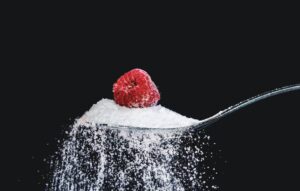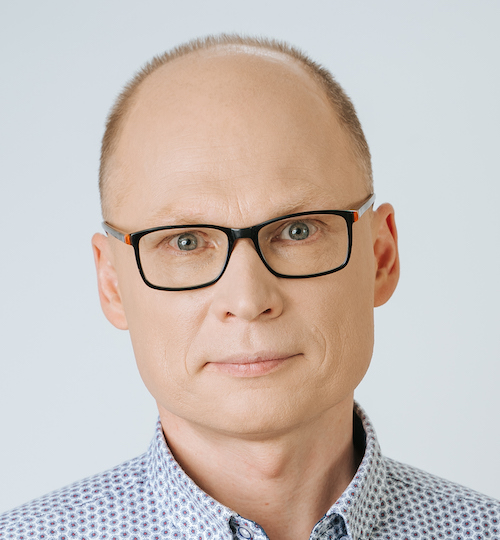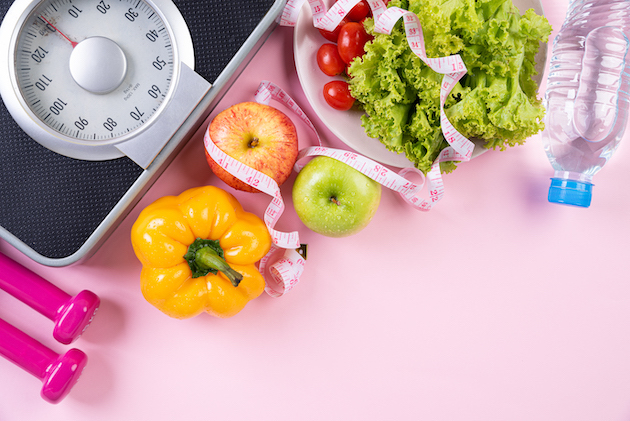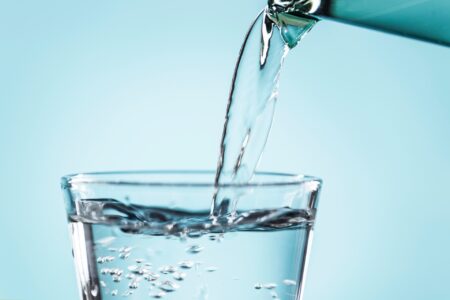Our bodies need energy, and our bodies can turn sugar into energy. So we need sugar, and since most of us love sugar, it seems like a perfect fit! So why not grab that next Snickers or Red Bull to boost your energy levels? That's exactly what Jacob Teitelbaum and Chrystle Fiedler write about in their book “Beat Sugar Addiction Now!”.
We all probably know that the energy provided by sugar doesn't last long, that the harmful effects of sugar outweigh the benefits, and that excessive sugar consumption is bad for our bodies and health. What's more, it's quite likely that you're addicted to sugar without even realizing it. Jacob and Chrystle introduce four types of sugar addiction and methods to limit your excessive sugar consumption.
Type 1 sugar addiction – “energy” drinks drain you
Another type of sugar addiction – when you are constantly stressed
The risk of type 3 sugar addiction – overindulging in sweets causes yeast to proliferate
The fourth type of sugar addiction – is your sugar cravings related to days?
In conclusion
Type 1 sugar addiction – “energy” drinks drain you
 You've probably heard of the energy drink Red Bull. You may like it or have consumed it occasionally. Sugary and caffeine-rich soft drinks like Red Bull are associated with type 1 sugar addiction.
You've probably heard of the energy drink Red Bull. You may like it or have consumed it occasionally. Sugary and caffeine-rich soft drinks like Red Bull are associated with type 1 sugar addiction.
People with type 1 sugar addiction are often perfectionists. They are only satisfied with what they think is best, whether it's at work, school, or at home. Since they don't have time to complete everything in the day, they reach for an energy drink to keep themselves going for long periods of time.
You feel tired and your body demands another sugar boost to boost your energy levels. In the hope of staying awake, you grab an energy drink. After a few hours, your body demands another dose, etc. By energy drink, we mean all sugary, caffeinated soft drinks.
Breaking out of this cycle can be difficult, but there is a ray of hope for type 1 sugar addicts as well. The SHINE method is the answer.
Free yourself from the first type of sugar addiction with the SHINE method
If you feel tired all day long, caused by the sugary drinks you consume, it's time to address your sugar addiction. The SHINE method consists of five steps:
- Make sure you get 8 hours of quality sleep every night. Your body craves sugar when you don't get enough sleep.
- Hormonal support. You may be feeling tired because your thyroid is underactive. An underactive thyroid can make you tired and cause sugar cravings. See your doctor for help.
- Next comes infections. Excess sugar weakens the immune system, which in turn makes you more susceptible to infections. You can strengthen your immune system with zinc supplements, a more active lifestyle, and a healthier diet.
- Your diet is also important. Eat plenty of unprocessed foods like fruits, vegetables, whole grains, and legumes. Unprocessed foods are an important part of a healthy diet because they contain many more nutrients and much less sugar than processed foods.
- And finally, exercise. Exercise increases energy levels and reduces sugar cravings. Exercise doesn't mean running a marathon. A 30-minute walk 4-7 times a week is enough to start.
Another type of sugar addiction – when you are constantly stressed
Do you get irritable easily when you're hungry? If so, have you ever wondered why? It's not just a craving for the taste of your favorite snack - it could be due to another type of sugar addiction.
Unlike the first type of sugar addiction, the second type of addiction is associated with high levels of stress, which depletes the body's adrenaline reserves. Everyday life can be stressful. Stress, in turn, causes the adrenal glands to produce more cortisol and adrenaline. These are hormones that ensure that blood sugar levels do not drop too low.
When you are constantly stressed, your adrenal glands get tired and your blood sugar levels drop. What do you do about it? You reach for the artificial alternative: sugar. Since sugar has a short-term effect, your blood sugar will soon be low again and you will go into a new cycle. The second type of sugar addict is often women or people who are constantly trying to please others.
Getting rid of another type of sugar addiction
The best way to overcome type 2 sugar addiction is to slow down and reduce stress, but for type 2 addicts, this is usually not an option. The next best thing is to take care of your adrenal glands and keep them functioning properly. To do this, cut back on sugar, coffee, and white flour, all of which lower your blood sugar levels and put a strain on your adrenal glands.
The risk of type 3 sugar addiction – overindulging in sweets causes yeast to proliferate
 You probably already know that sugar ferments in your stomach. But did you know that candida albicans, a type of yeast, thrives on this fermented sugar?
You probably already know that sugar ferments in your stomach. But did you know that candida albicans, a type of yeast, thrives on this fermented sugar?
Yeast begins to grow unhealthily in your stomach when you consume too much sugar. As this fungus grows, it creates an ever-increasing sugar craving, creating a vicious cycle that leads to yeast overgrowth.
You're a type 3 sugar addict if you suffer from yeast overgrowth - and your diet probably contains a lot of hidden sugar. A type 3 sugar addict probably keeps sweets, cakes or cookies within reach in case a sweet tooth strikes.
Getting rid of the third type of sugar addiction
The solution is simple. If you don't want to get drunk, don't drink alcohol. If you don't want to be sleepy during the day, don't take sleeping pills. Yeast overgrowth works in a similar way. You can get rid of it by starving the yeast, or by avoiding sugar.
Yeast thrives on sugar, so eliminate the root cause. Cut out those cakes, cookies, or other sweets and snacks immediately. This is the first and most important step.
The next four steps to overcoming yeast infection are to eat a healthy diet that includes whole grains, vegetables, and fruits.
You may also need anti-yeast medication. In milder cases, natural remedies can also help. Also use high-quality supplements to strengthen your immune system.
Fourth, check for food allergies, as many allergies exacerbate sugar cravings.
The fourth type of sugar addiction – is your sugar cravings related to days?
Does your mood change a few days before your period starts? Do you feel grumpy, irritable, or have a big sugar craving? If so, you may be a type 4 sugar addict. Type 4 sugar addiction results from hormonal changes in a woman's body caused by insulin resistance.
The cause may be premenstrual syndrome, or PMS. PMS is associated with a number of symptoms that women experience during their menstrual cycle, such as moodiness or increased sugar cravings. Most researchers agree that it is related to low levels of the hormones progesterone and prostaglandin.
Progesterone and prostaglandin levels are at their lowest during your period, which can lead to increased sugar cravings. Things get even worse if you happen to have insulin resistance. Insulin is a hormone that controls blood sugar levels. Insulin resistance means that your cells don’t respond to insulin normally, which causes your cells to starve and sugar builds up in your blood instead. The result is that your cells demand more sugar, but it doesn’t reach them, even if you eat more. You end up feeling exhausted, depressed, and constantly struggling with sugar cravings.
The solution to type four sugar addiction
Wouldn't it be great if you could eliminate all the uncomfortable symptoms of menstruation with a few magic words? While that's not yet possible, there are some effective alternatives.
Adjust your diet by weaning yourself off sugar. Avoid junk food, processed foods, white flour, and soft drinks.
If you have insulin resistance, change your diet according to the advice of a nutritionist. There are several natural remedies that can help relieve PMS symptoms, such as sugar cravings. For example, vitamin B6 can help with low prostaglandin levels. Take 150 to 200 mg of B6 every day for three to six months and you will no longer be so grumpy and crave sugar during the day.
In conclusion
Sugar addiction, like any addiction, is destructive to your health. If you suspect that sugar has taken over your life, you probably have one of the four types of sugar addiction. Fortunately, it is possible to break free from it and gain control over your sugar intake and related habits. Experiment and find what works best for you, and get to work!

Allan Randlepp
NutritionistAllan is a nutritionist and trainer whose favorite topics are lifestyle and longevity, including nutrition and physical activity.
Nutritional counseling





